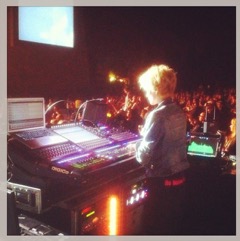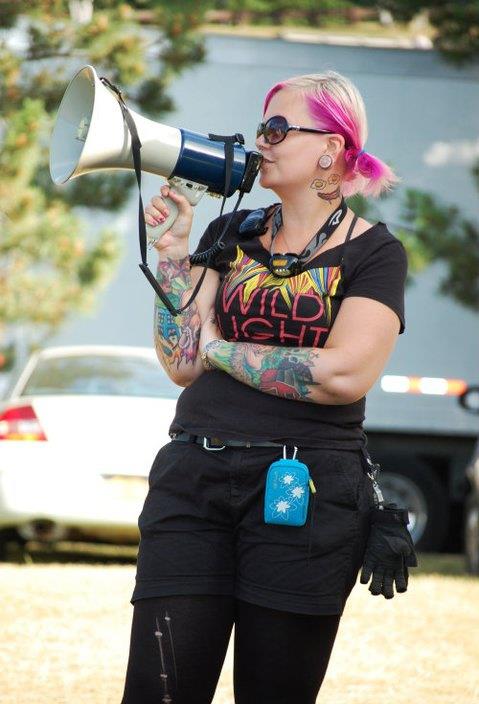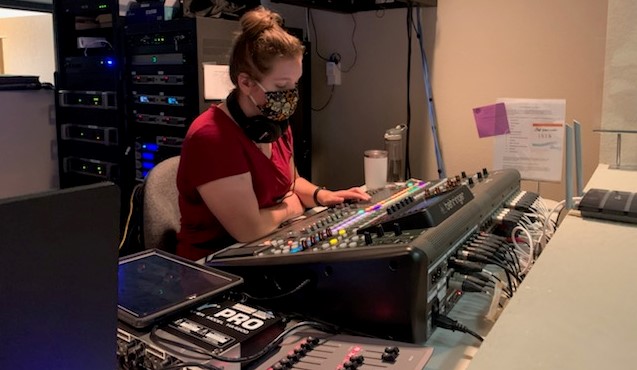The Grammy for Producer of the Year, Classical (originally Classical Producer of the Year) was introduced in 1979. This particular category distinguishes itself as the first technical award where a woman was nominated on the ground floor, during the category’s inaugural year.
That woman was Joanna Nickrenz.
Not only was Nickrenz the first woman to receive a nod in Production (Classical Producer of the Year – 1979), she’s also the first woman I’ve found on record to be nominated for a Grammy in Engineering (Best Engineered Recording, Classical for Edgard Varése’s “Percussion Music” – 1974).
A classically trained pianist, Ms. Nickrenz took a strong interest in the recording process during her first studio sessions. This led to her taking an assistant position at Elite Recordings, where she worked as an editor, producer, and eventually full partner to Elite founder, recording engineer Marc Aubort. Records made under the Aubort/Nickrenz umbrella carry a legacy among audiophiles as being some of the best orchestral recordings ever produced.
Affectionately dubbed “Miss Razor Ears,” Joanna was fiercely dedicated to preserving the integrity of the score. She was known to admonish musicians if they played any part of a work incorrectly or dared to improvise. When she passed away in 2002, her urn was humorously engraved with an oft-used corrective phrase: “What’s written is also nice.”
Ms. Nickrenz received 8 Producer of the Year, Classical nominations and won the award twice. In 1983, she shared the win with Aubort. In 1996, she was the sole recipient. She was additionally nominated in 1984, 1986, and 2001, but did not win during those years.
If she is indeed the first woman to break through the Grammy glass ceiling in both production and engineering, how is it that Joanna Nickrenz doesn’t even have her own Wikipedia page? Why can’t I find a single photograph of this pioneering lady?
(SoundGirls let’s get her a Wikipedia page – Editing SoundGirls into Wikipedia)
Women account for around 14% of those nominated for Producer of the Year, Classical. A total of eight Grammys have been handed to women in the category’s 39-year history.
Five of these trophies have gone to Judith Sherman.
Nominated a whopping 12 times, Judith is a major contributor to the catalog of recorded classical music. She got her start as a broadcast engineer at WBAI-FM in New York City, working up to positions as a producer and musical director. She started her own production company, Judith Sherman Productions, in 1976. She is the second woman to be nominated for a Grammy in Engineering, receiving a Best Engineered Recording, Classical nod in 1990.
Though she’s established a long and fruitful legacy, Ms. Sherman remains a force to be reckoned with to this day. She has been nominated for Producer of the Year, Classical for the past five years in a row.
Being prolific seems almost a prerequisite when you look at the women in this category, most of whom have been nominated multiple times.
Robina G. Young has received ten nominations for Producer of the Year, Classical. Marina A. Ledin has received eight. Young and Ledin have not yet crossed the stage to collect a trophy, but they show no signs of slowing down. 2006 winner Elaine Martone has managed over 1500 projects and offers a staggering biography. Nominee Elizabeth Ostrow is still going strong on a career spanning over 40 years. Anna Barry, who has over 500 recordings in her discography, was recently tasked to be the official recordist for the Royal Wedding. The late Patti Laursen was another important trailblazer, producing the first digital recordings made by Capitol Records in 1979.
Women in production have fared much better in the Classical division than in the category’s Non-Classical equivalent, with the percentage of wins landing at about 20%. The percentage of women who’ve won Producer of the Year, Non-Classical is still zero.
Though popular music will always have better PR, some of the most crucial and groundbreaking work has been done by women operating under the Classical umbrella. Seeing that the Recording Academy is pushing #WomenInTheMix and that March is Women’s History Month, the accomplishments of these producers should be loudly celebrated.
I invite you to dive deeper into the stories of the women nominated for Producer of the Year, Classical. Personally, I’ll be ensuring that Ms. Nickrenz finally gets her Wiki page. If anyone out there can find a picture of her, I sure would be glad to finally see it.
JOANNA NICKRENZ
1979 / 1983* (winner) / 1984 / 1986 / 1988 / 1996* (winner) / 2001
JUDITH SHERMAN
1990 / 1993* (winner) / 1994 / 1997 / 2007* (winner) / 2008 / 2011* (winner) / 2014* (winner) / 2015* (winner) / 2016 / 2017 / 2018
ELAINE MARTONE
2006* (winner) / 2014
ROBINA G. YOUNG
1993 / 1998 / 1999 / 2001 / 2002 / 2003 / 2004 / 2007 / 2008 / 2016
MARINA A. LEDIN
1999 / 2003 / 2007 / 2010 / 2012 / 2013 / 2015 / 2016
ELIZABETH OSTROW
1989 / 2018
PATTI LAURSEN
1989
ANNA BARRY
1994



